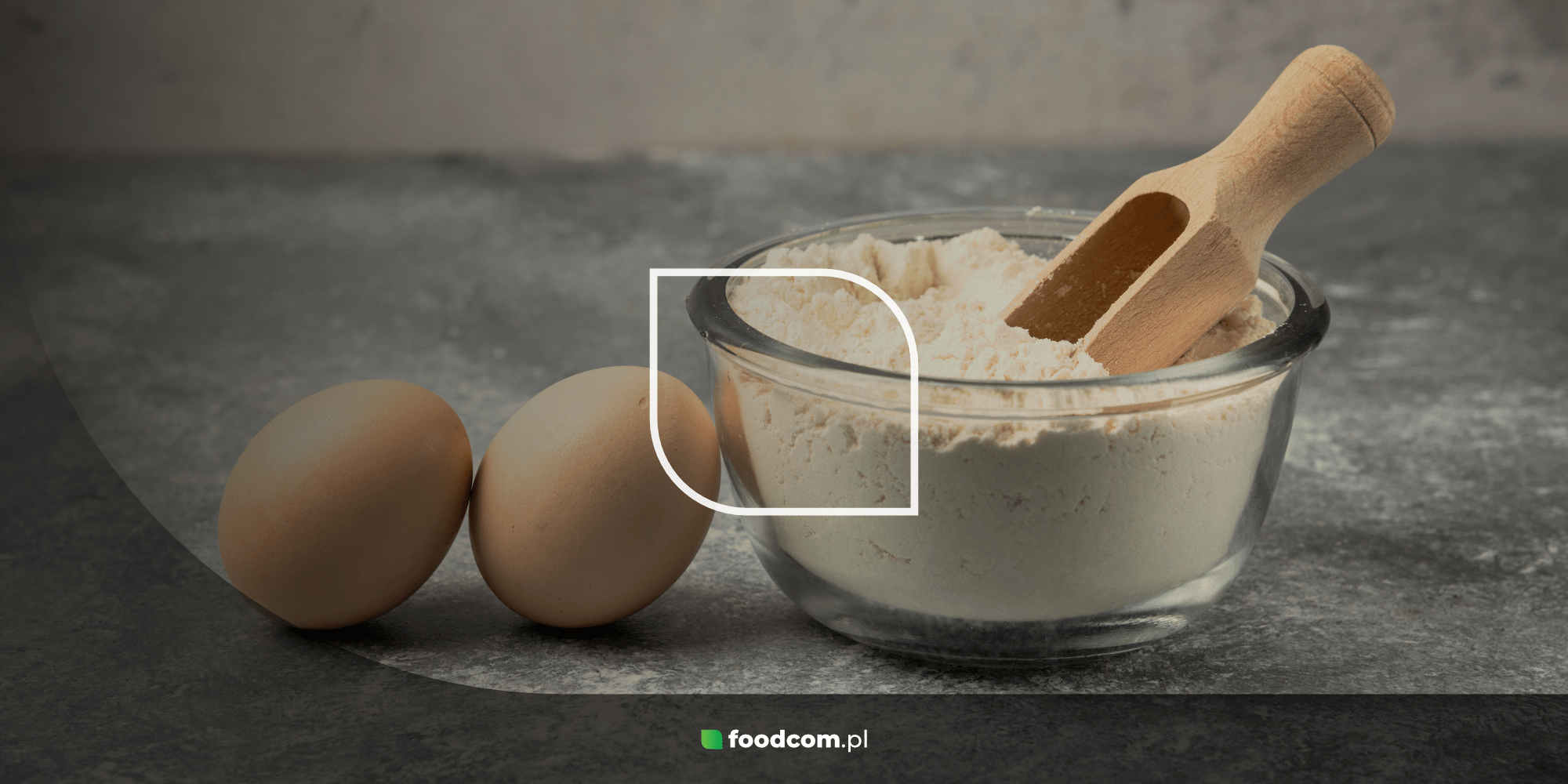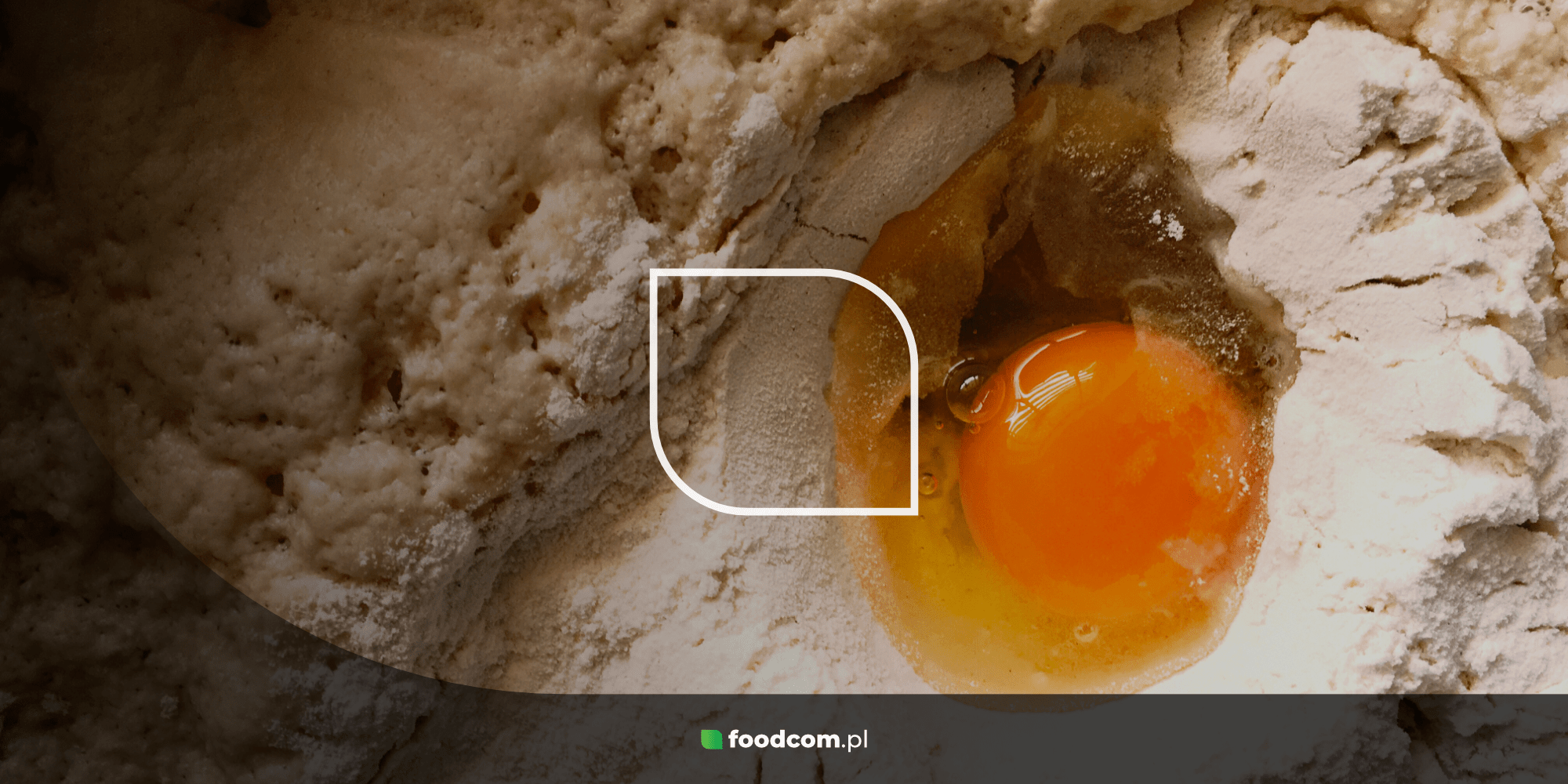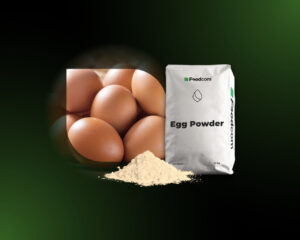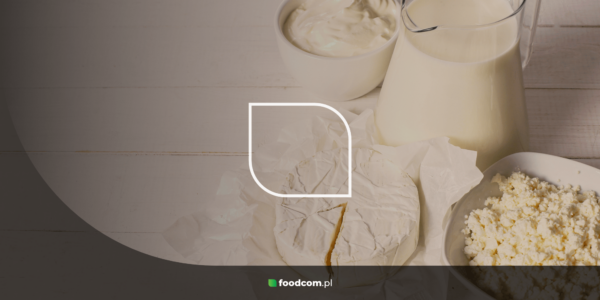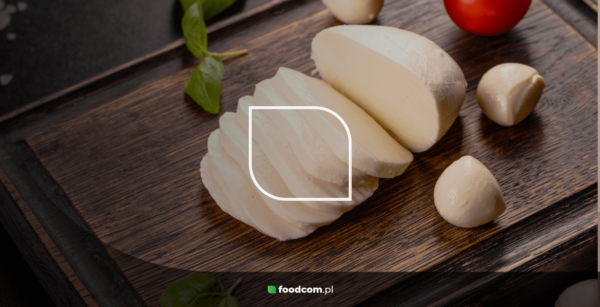- Egg powder is powdered eggs. It is obtained by spray-drying fresh eggs.
- Egg powder is used in the food industry, for example as an additive in bread, biscuits and cakes, in the production of pasta, ready-made meals and sauces.
- Eggs in this form have all the properties of fresh eggs, are easy to transport and use, and are safe for health.
Egg powder is an ingredient increasingly used in many food industries. Egg powder is becoming an attractive alternative to fresh eggs due to its properties, long shelf life, and convenience of storage, transport and use. We explain what egg powder is, how it is made and its most common uses.
What is egg powder?
Egg powder is a dehydrated form of eggs obtained by drying them. It takes the form of a fine powder with a yellow or cream colour. The product in this form retains most of the properties of fresh eggs – both in terms of nutritional and technological properties. Powdered eggs are a rich source of protein, accounting for 30-37% of their content. The powder has a water content of less than 4% and high solubility.
Thanks to the variety of forms, egg powder can be adapted to the specific needs of the producer. We can encounter such egg powder variants as:
- whole egg powder;
- egg white powder;
- yolk powder.
Powdered eggs can be restored to liquid form by adding the appropriate amount of water – they then become almost identical to fresh eggs in terms of technological use. One kilogram of egg powder corresponds to approximately 80-90 fresh eggs.
How is egg powder produced?
The production process of egg powder consists of several steps to ensure the highest quality and nutritional value of the product. First, the fresh eggs are washed and broken, and then the shells and membranes are removed. The egg mass can be separated at this stage, depending on the intended product, which can be whole eggs, egg whites or egg yolks.
The liquid is then filtered and cooled. The next step is pasteurization, during which the liquid eggs are heat treated to eliminate possible pathogens, ensuring the safety of the final product. This is followed by spray drying, a crucial stage in which water is removed from the product using hot air in a spray dryer, resulting in a free-flowing powder.
The final step is packaging and storage – the egg powder is placed in airtight packaging to protect it from moisture and contamination. Under the right conditions, it can be stored for up to 12–24 months. One of the renowned suppliers of egg powder on the European market is Foodcom S.A.
Use of egg powder in the food industry
The use of egg powder is extremely wide and covers almost every segment of the food market. This product is valued especially for its fluffing and emulsifying properties. It also imparts the desired texture, crispness and colour to final products.
The main areas of application for egg powder include:
- Baking and confectionery – this is one of the largest consumers of egg powder. In cakes, biscuits, pancakes or muffins, they serve as an emulsifier, raising agent and stabiliser, performing the same functions as fresh eggs.
- Pasta production – high quality egg noodles often contain egg yolk powder, which is responsible for the uniform, attractive colour, texture and flavour of the final product, as well as enhancing the nutritional value of the pasta.
- Ready meals, sauces and instant products – in ready meals such as powdered omelettes, cake mixes, breadcrumbs, mayonnaise or dressings, egg powder proves itself as a substitute for fresh eggs or yolks alone, facilitating the automation of production and increasing the shelf life of finished products.
- Meat industry – in particular, egg white powder is used in meat processing to improve the texture and stability of pâtés, sausages or burgers thanks to its gelling and binding properties.
- Dietary products, food supplements and sports nutrition – egg white powder is valued as a source of complete, easily digestible protein, of which it contains up to approx. 80%.
- Feed industry – egg powder or protein powder is used as a high-protein additive in animal feed.
Why use egg powder as a substitute for fresh eggs?
Egg powder is an excellent substitute for fresh eggs especially in situations where:
- fresh eggs are difficult to obtain, expensive or transport is not possible (generally this must be refrigerated transport, taking up more space than transporting powdered eggs);
- greater microbiological control of the product and a longer shelf life are needed (including reducing the risk of Salmonella development in the absence of refrigeration);
- uniformity of each batch of product and precise dosing is important to us;
- efficiency and/or automation of production is important to us;
- we need only egg yolks or only egg whites.
Egg powder is a practical and functional solution that is readily used in the modern food industry. Egg powder is characterised by its versatility, extended shelf life and ease of transport and use in technological processes, so that it is increasingly replacing fresh eggs in industrial-scale food production. The use of egg powder allows processes to be streamlined, costs to be reduced and the quality of final products to be increased.


